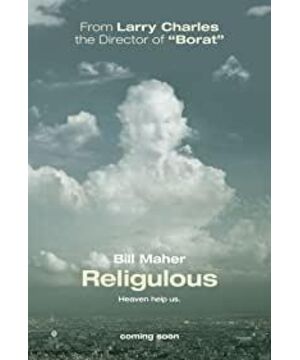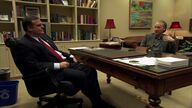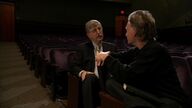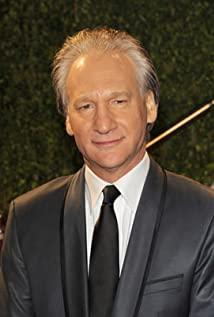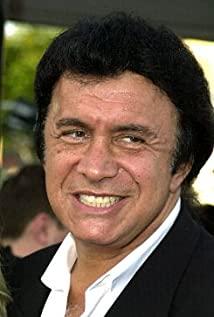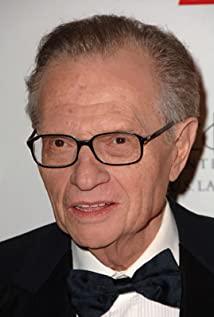Secondly, I want to talk about the expression that is almost the most frequently mentioned in this documentary: All things are political/They are all politics/All of them are politics. Leaving aside this complicated cliche, we can find Although the film interviews people from different countries and cultural backgrounds, the language of communication used throughout is English. Taking a break from this film, we might as well examine the era we live in. How many pages on the Internet are now in English? How many presentations in international academic conferences held under various names are presented in English? How many English training classes in China are eating up how many Chinese people’s time every year, and how many Chinese people in the United States have gone through untold hardships every year to achieve fruitful results. It can be said: I am an American citizen, finally? There is no fair and objective evaluation. If someone comes up with a big pile of documents, there are credible photos, there are interviews with clear background, there are data that has been verified by all parties, and then they will let you know that is the truth. You might as well ask: Alright, I do not deny the veracity of these evidences, but why were they selected as evidence? In other words, why does a documentary that explores the rationality of religion turn a deaf ear to the religions of China, India, Pakistan, Afghanistan and other countries? Because in the third world people are busy making Barbie dolls for little girls in the West on factory assembly lines, is religion just a ridiculous luxury for them? Perhaps my speculation and questioning are extreme, but going back to the topic at the beginning of the paragraph, there is indeed no topic that is completely immune to political factors, let alone the long and long-standing Big Issue of religion. Bill's attitude towards Islam can basically be summed up as "anti-Christian mockery + anti-terrorist disgust". If Bill is somewhat joking when he talks about Christianity, after all, the Inquisition and the burning of infidels are hundreds of years old in the history of Christianity, then when he looks at Islam, he puts his whole body into it. His heart turned to the general anti-Islamic tide in the United States since 9/11 - in this way, he really responded to his own judgment: "Faith is a virtue that does not require thinking". And the anti-Islamic culture is his belief, which is supported by the collapse of the Twin Towers in New York, the burning human bombs dancing on the streets of Iraq, and the desperation of suffering from life and death due to al Qaeda kidnapping. resentful face. These are the facts he chose, they are all true, but together they cannot support the heavy title of "facts". There are other aspects of the fact, such as who caused the division and decline of Arab countries in the past few hundred years? And who grabbed the oil under the desert at unequal prices in Kuwait, Iraq, and Libya? And who is igniting wars around the world in the name of freedom?
"There is no compulsion in religion." ("The Ox", verse 256)
"Whoever believes in Allah and the Last Day and does good deeds, believers, Jews, Christians, Star worshippers, will enjoy themselves with the Lord in the future. The reward, they will have no fear or sorrow in the future." ("The Ox", verse 62)
This is the original quote from the "Qur'an", and I think Muhammad has expressed his attitude towards the infidels. As for why the image of Islam in our minds now is a face that is ready to slaughter infidels at any time? I think we need to stop and think about the ins and outs of it? Or more precisely, how did this impression form in your mind?
Finally, I would like to say that I am not deeply involved in religion, and I have only read a few books on the history of Christianity. As for other religions, I only have a little knowledge of Buddhism and Taoism, and I have not even read the Bible in its entirety. , I have read a Buddhist scripture, so I can only be regarded as an agnostic with some lack of confidence. I'm mostly in the agnostic camp because I know so little.
"The only appropriate attitude for man to have about the big questions is not the arrogant certitude that is the hallmark of religion, but doubt. Doubt is humble, and that's what man needs to be."
This is Bill's statement at the end of the film Remarks, although I have some doubts about whether he is looking at his beliefs with a humble and sceptical attitude, but I do not agree with each of us that we demand ourselves with this concept. Sometimes when we feel more than ourselves right, we might as well pour ourselves a pot of timely cold water. Be cool~
View more about Religulous reviews


